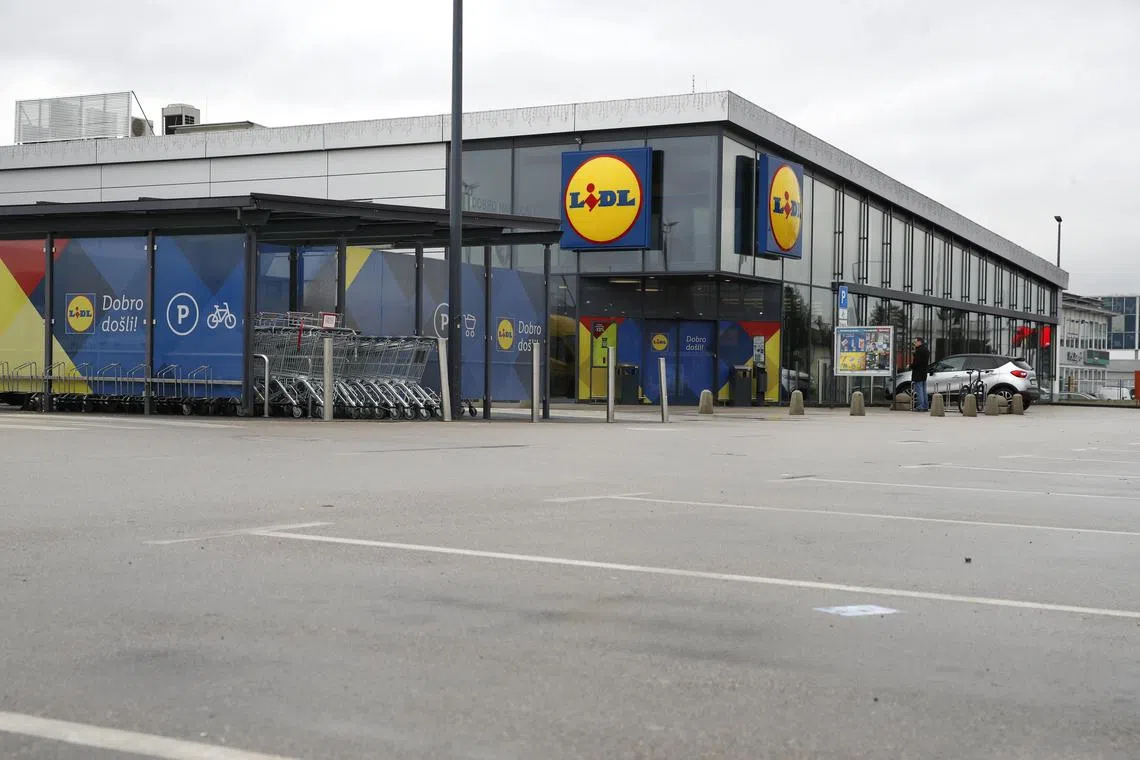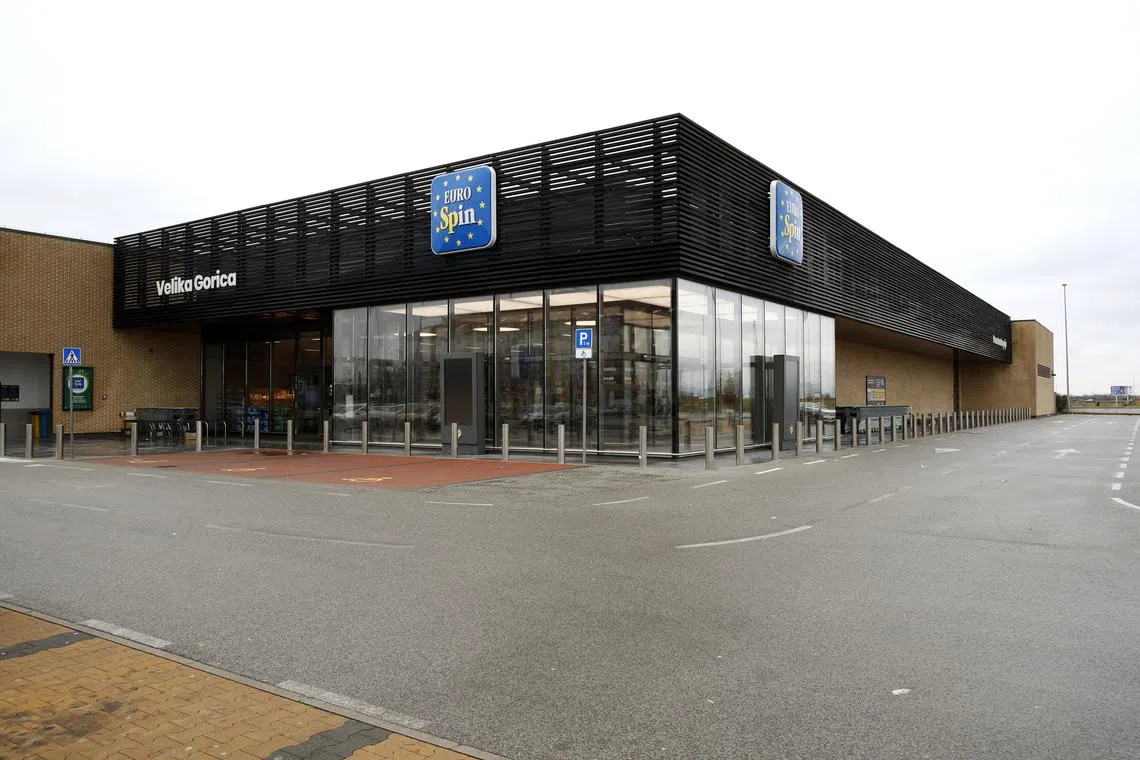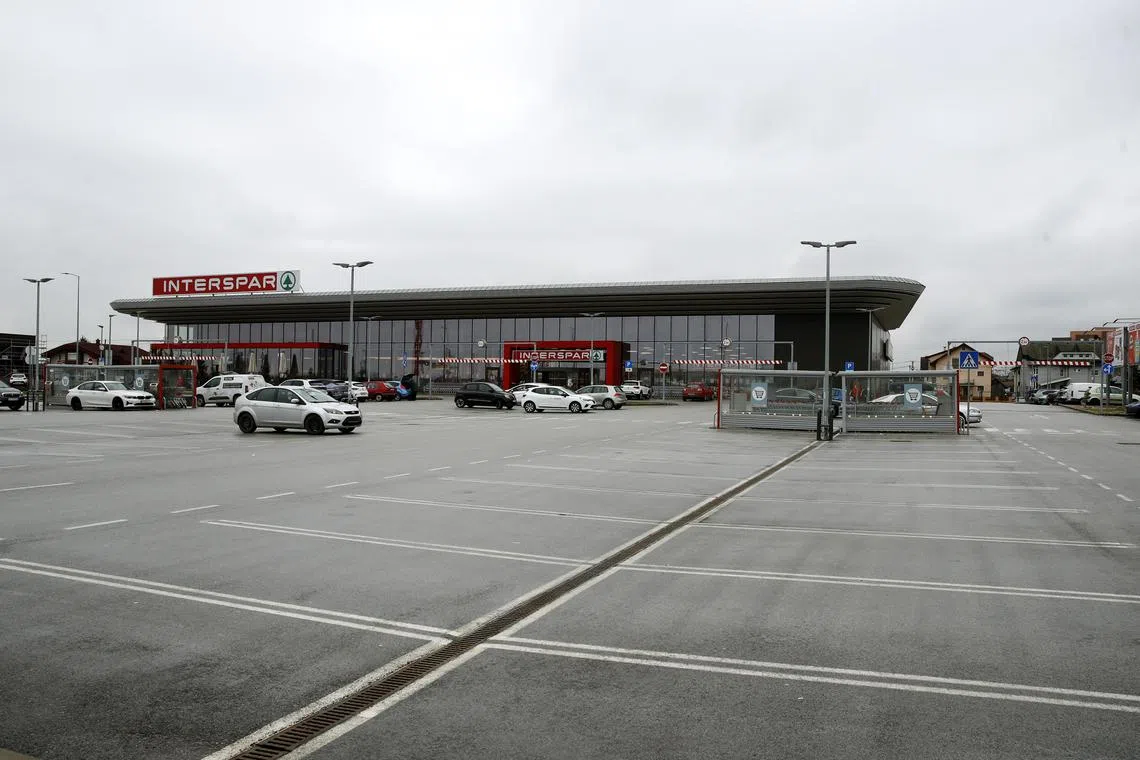Croatians boycott shopping over high prices, causing sales to plunge
Sign up now: Get ST's newsletters delivered to your inbox

An empty parking lot at a Lidl store in Zagreb, Croatia, on Jan 24, after people staged a boycott over high prices in shops.
PHOTO: EPA-EFE
ZAGREB – Sales plummeted in Croatia on Jan 24 during a nationwide shopping boycott to protest rising food prices and biting inflation in the Balkan country, official figures showed.
The protest, initiated by consumer groups, aimed to pile pressure on retailers that they have blamed for surging inflation.
The boycott call was widely shared on social media earlier this week and urged Croatians “not to buy anything”.
By 11am (6pm Singapore time), stores had issued 40 per cent fewer receipts when compared to the same period on Jan 17, the country’s tax administration said in a statement.
Total turnover was 47 per cent lower compared with the last week, it added.
Around midday, only a few customers were shopping in a central Zagreb supermarket that is usually crowded during that time, according to an AFP journalist.
“Retailers will not be financially harmed, but this is an important symbolic message that price gouging should stop”, Mr Danko Horvat, a barman from Zagreb, told AFP.
Consumer groups said they were satisfied with the response.
The boycott shocked retailers, said Mr Josip Kelemen, of the Halo, inspektore consumer protection group, which called for the protest.
“People feel cheated,” Mr Kelemen said.
“Even the well-off have supported us, they feel the same way.”

An empty parking lot at the Euro Spin store in Zagreb, Croatia, on Jan 24.
PHOTO: EPA-EFE
The boycott was also backed by opposition parties, trade unions, some local celebrities as well as two ministers.
Local media reports and posts on social media showed empty stores and grocery chains across Croatia.
Inflation in Croatia has largely been fuelled by the country’s bloated public sector, one of the European Union’s highest value-added tax rates, and its ageing and shrinking population, according to economic experts.

Local media reports and posts on social media showed empty stores and grocery chains across Croatia.
PHOTO: EPA-EFE
In December, the country’s 4.5 per cent annual inflation rate was the highest in the eurozone, where the average stood at just 2.4 per cent.
The average net salary in Croatia was €1,366 ($1,840) in November, official figures show.
Consumer groups have repeatedly complained that prices have risen steadily since Croatia adopted the euro as its currency in January 2023. AFP


